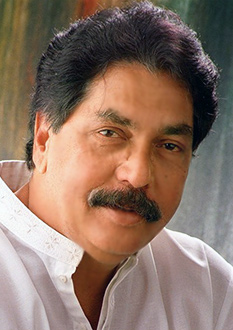
A post office is a public facility and a retailer that provides mail services, such as accepting letters and parcels, providing post office boxes, and selling postage stamps, packaging, and stationery. Post offices may offer additional services, which vary by country. These include providing and accepting government forms, and processing government services and fees. The chief administrator of a post office is called a postmaster.

Indian postal systems for efficient military and governmental communications had developed long before the arrival of Europeans. When the Portuguese, Dutch, French, Danish and British conquered the Marathas who had already defeated the Mughals, their postal systems existed alongside those of many somewhat independent states. The British East India Company gradually annexed the other powers on the sub-continent and brought into existence a British administrative system over most of modern-day India, with a need to establish and maintain both official and commercial mail systems.

The Visvesvaraya Industrial and Technological Museum (VITM), Bangalore, India, a constituent unit of the National Council of Science Museums (NCSM), Ministry of Culture, Government of India, was established in memory of Sir M. Visvesvaraya. The 4,000 m2 (43,000 sq ft) building was constructed in Cubbon Park, and was inaugurated by the first Prime Minister of India, Pandit Jawaharlal Nehru, on July 14, 1962. The museum displays industrial products, scientific models and engines.

Airmail is a mail transport service branded and sold on the basis of at least one leg of its journey being by air. Airmail items typically arrive more quickly than surface mail, and usually cost more to send. Airmail may be the only option for sending mail to some destinations, such as overseas, if the mail cannot wait the time it would take to arrive by ship, sometimes weeks. The Universal Postal Union adopted comprehensive rules for airmail at its 1929 Postal Union Congress in London. Since the official language of the Universal Postal Union is French, airmail items worldwide are often marked Par avion, literally: "by airplane".
A postal worker is one who works for a post office, such as a mail carrier. In the U.S., postal workers are represented by the National Association of Letter Carriers, AFL–CIO, National Postal Mail Handlers Union – NPMHU, the National Association of Rural Letter Carriers and the American Postal Workers Union, part of the AFL–CIO. In Canada, they are represented by the Canadian Union of Postal Workers and in the United Kingdom by the Communication Workers Union.

The Department of Posts, d/b/a India Post, is an Indian public sector postal system statutory body headquartered in New Delhi, India. It is an organisation under the Ministry of Communications. Generally known as the Post Office, it is the most widely distributed postal system in the world, and India is the country that has the largest number of post offices in the world. It is involved in delivering mail (post), remitting money by money orders, accepting deposits under Small Savings Schemes, providing life insurance coverage under Postal Life Insurance (PLI) and Rural Postal Life Insurance (RPLI) and providing retail services like bill collection, sale of forms, etc.

The National Postal Museum, located in Washington, D.C., is the primary postal museum of the United States. It covers large portions of the postal history of the United States and other countries. It was established through joint agreement between the United States Postal Service and the Smithsonian Institution and opened in 1993.

A post box, also known as a collection box, mailbox, letter box or drop box, is a physical box into which members of the public can deposit outgoing mail intended for collection by the agents of a country's postal service. The term post box can also refer to a private letter box for incoming mail.

A virtual museum is a digital entity that draws on the characteristics of a museum, in order to complement, enhance, or augment the museum experience through personalization, interactivity, and richness of content. Virtual museums can perform as the digital footprint of a physical museum, or can act independently, while maintaining the authoritative status as bestowed by the International Council of Museums (ICOM) in its definition of a museum. In tandem with the ICOM mission of a physical museum, the virtual museum is also committed to public access; to both the knowledge systems embedded in the collections and the systematic, and coherent organization of their display, as well as to their long-term preservation. As with a traditional museum, a virtual museum can be designed around specific objects, or can consist of online exhibitions created from primary or secondary resources. Moreover, a virtual museum can refer to the mobile or World Wide Web offerings of traditional museums ; or can be born digital content such as, 3D environments, net art, virtual reality and digital art. Often, discussed in conjunction with other cultural institutions, a museum by definition, is essentially separate from its sister institutions such as a library or an archive. Virtual museums are usually, but not exclusively delivered electronically when they are denoted as online museums, hypermuseum, digital museum, cybermuseums or web museums.

Yusuf Arakkal was an Indian artist.

The Canadian Postal Museum (CPM) was a museum once housed within the Canadian Museum of Civilization in Gatineau, Quebec. It was described by the Smithsonian Museum as being one of the five largest postal museums in the world, ranking second in annual attendance. The museum was not primarily about postage stamps, although it has a first-class collection that numbered in the tens of thousands. Rather, it presented the broader story of Canada's postal heritage, including the social and economic importance of postal communications throughout the country's history. It also explored international themes relating to postal communications.

Owney was a terrier mix adopted in the United States as a postal mascot by the Albany, New York, post office about 1888. The Albany mail professionals recommended the dog to their Railway Mail Service colleagues, and he became a nationwide mascot for nine years (1888–1897). He traveled over 140,000 miles throughout the 48 contiguous United States and around the world as a mascot of the Railway Post Office and the United States Postal Service. He was the subject of commemorative activities, including a 2011 U.S. postage stamp.

The Department of Posts, functioning under the brand name Sri Lanka Post, is a government operated postal system in Sri Lanka. The postal headquarters is the General Post Office which is located in Colombo. The department itself comes under the purview of the Ministry of Information and Mass Media. It was formerly known as the Ceylon Post and Telecommunications Department and is one of the oldest Government departments in existence today.

A postal museum is a museum dedicated to the display of objects relating to the postal service. A subcategory of postal museums are philatelic museums, which focus on philately and postage stamps.

The Philatelic and Postal Museum of Greece is a museum dedicated to the philately and postal history of Greece. It is located at the junction of Stadiou Square and Fokianou Street, next to the Panathenaic Stadium (Kallimarmaro), in Athens.

This is a survey of the postal history and postage stamps of Thailand.

The Istanbul Postal Museum, aka PTT Museum Istanbul, is a postal museum dedicated to the historical development of mail and telecommunication services in the Ottoman Empire and Turkey, exhibiting related equipment and instruments as well as a collection of postage stamps. It was established in 2000 by the Turkish Post, and is situated inside the Grand Post Office building at Sirkeci quarter of Fatih district in Istanbul, Turkey.

The Bhutan Postal Museum was opened on 7 November 2015 at the General Post Office building in the capital city Thimphu. The postal museum captures the story of the evolution of communication, transportation and postal services in Bhutan. The story is told through a collection of various anecdotes, artifacts and a rich assortment of stamps Bhutan has produced over the years.

The Museum of Communication is an interactive museum dedicated to the subject of communication in Bern, Switzerland. In 2019 it was awarded the Council of Europe Museum Prize. It was founded in 1907 as the corporate museum of Swiss Post, the national postal service of Switzerland. The restructuring of the museum into a foundation of Swiss Post and Swisscom led to a broadening of the overall theme and a new name, the Museum of Communication. The latest incarnation of the museum, which opened its doors with a redesigned permanent exhibition in 2017, is focused completely on its visitors.



















